Keith Yandell is gone. After a long battle with multiple health problems, on the morning of April 28, 2020 he drew his last breath. He is now “absent from the body and at home with the Lord” (2 Cor 5:8).
Keith was the Julius R. Weinberg Professor of Philosophy at the University of Wisconsin-Madison, where he taught for nearly four decades. He also taught philosophy of religion and philosophical theology at Trinity Evangelical Divinity School from 2000-2014. It was in this capacity that I (Tom) knew him; when I joined the Trinity faculty in 2004, Keith immediately welcomed me with two things: his characteristically warm and merry smile, and philosophical arguments. I enjoyed his company immensely, and I learned a lot from him. One of the highlights of my academic ministry was participating in a debate with him in the ATO Chapel in 2008; it was an honor to be there with Keith, and, frankly, it was also just a lot of fun. I’ll never regret the time I spent with him. I only regret that there wasn’t more of it.
(Harold) My first encounter with Keith Yandell was in 1980, during my doctoral studies at Claremont. I came across his two articles on ineffability in the International Journal for Philosophy of Religion.Keith E. Yandell, “Some Varieties of Ineffability,” International Journal for Philosophy of Religion 6, no. 3 (1975): 167–79; “The Ineffability Theme,” International Journal for Philosophy of Religion 10, no. 4 (1979): 209–31. Two things immediately impressed me. At a time when traditional theology had no place in the academy and philosophy of religion was widely dismissed for being intellectually soft, here was a philosophically rigorous and illuminating treatment of religious claims. Nothing soft about those essays. Second, without sacrificing intellectual rigor, the essays took traditional religious beliefs seriously and treated them with respect. No cheap shots. Here, I thought, is someone I need to learn more about. I could not imagine that two decades later we would be colleagues His writings cover an astonishing variety of subjects—early modern philosophy, epistemology, metaphysics, logic, moral theory, religious pluralism, and Buddhism. at TEDS and that I would collaborate with him on a book on Buddhism. Keith was one of the few “Western” philosophers to treat Buddhism as a serious philosophical system and to examine its metaphysical and epistemological claims as genuine philosophical claims.
Keith was an accomplished and influential philosopher. Although not as well known in evangelical circles as Alvin Plantinga, Nicholas Wolterstorff, Richard Swinburne, or William Alston, Keith Yandell was an active member of that generation of Christian philosophers who brought about the remarkable renaissance in philosophy of religion and philosophical theology. He was involved in the formation of the Society of Christian Philosophers and contributed to journals, conferences, and symposia on philosophy of religion. But he was primarily a philosopher, not merely a philosopher of religion. His writings cover an astonishing variety of subjects—early modern philosophy (his Hume’s Inexplicable Mystery is, we think, the best discussion of Hume’s philosophy of religion in publication), epistemology, metaphysics, logic, moral theory, religious pluralism, and Buddhism. Although a committed Christian, he was not primarily interested in apologetics or in “proving” the truth of Christian theism. He was intellectually curious and willing to follow the argument where it leads. His work was original; Keith would often see things differently than others, and he was not at all afraid to say so. It was penetrating and profound, and he made deep and lasting contributions. It was also rigorous; he wouldn’t try to bluff his way through an issue or hand-wave something away.
Beyond his scholarly publications, Keith’s influence as a teacher has been deep and broad. Watching him teach was like taking a master class in classical, Socratic-style pedagogy. I (Tom) remember in particular one lecture on God and time. He had prepared a handout that included an argument of about twenty numbered propositions. Walking back and forth in front of the class, he worked through the argument proposition by proposition. He would regularly intersperse sub-arguments and clarifications along the way (as in: “moving from (12) to (13), we can immediately see that (13) is ambiguous and can be disambiguated as either (13*) or (13**). . . here are three arguments to read this as (13*). . . Now, returning to the main argument, (12) and (13*) yield (14) by modus ponens. . .”). He would also regularly punctuate the lecture with moments of dry, self-effacing humor; the lecture was about 90% publication-ready journal article and about 10% truly funny stand-up comedy. The most astounding thing about this was that it was almost entirely free-flowing and spontaneous—only every once in a while, would he walk over to the lectern and pick up his notes. To see him operate was to watch a beautiful mind at work. One of his former students referred to him as “Philosophy Incarnate.” His impact on hundreds of students was profound.
Keith was unashamedly Christian in an academic environment where admitting religious commitments was seen as intellectual suicide. Nevertheless, his life of integrity and intellectual humility and honesty earned him the respect of his colleagues. He was active with InterVarsity Christian Fellowship and with the Institute for Advanced Christian Studies (IFACS). Although his illness prevented him from participating in the Creation Project, there are connections between Keith and the Henry Center.Keith modeled for us what it means to be a disciple of Jesus and a philosopher. God gifted him with a brilliant, inquisitive, and highly disciplined mind and Keith used this gift to probe, as best humans can, God’s nature and the world God created. Keith was able to steer funding to the Henry Center at one of its critical junctures in the early 2000s. He also participated in two of the Henry Center Debates. Keith was a personal friend of Carl Henry and the Creation Project is precisely the kind of rigorous interdisciplinary endeavor he would have loved.
Keith was a prominent philosopher; a powerful intellect who made seminal contributions to his field. He was a brilliant lecturer who changed lives of countless students. But even more than that, and deeper than that, he was a wonderful person. Keith modeled for us what it means to be a disciple of Jesus and a philosopher. God gifted him with a brilliant, inquisitive, and highly disciplined mind and Keith used this gift to probe, as best humans can, God’s nature and the world God created. He was genuinely humble. He was always hungry to learn, thus he read broadly and had deep appreciation for the work of biblical scholars and theologians. He was relentlessly and ruthlessly honest; he wouldn’t settle for easy answers but would continue to wrestle with hard challenges. Despite his philosophical rigor, Keith also had a healthy appreciation of mystery when it comes to the things of God. This, we believe, is what it means to love God with all of our mind and when done in the proper spirit it can be an act of worship. Keith showed us how to honor and worship God our Creator through the intellectual gifts God has given us. He was kind and gentle, and when you were with him, he had a way of making you feel that there is no place in the world that he would rather be.
If there is a “Platonic form” of the Christian scholar, it was Keith. He was an inspiration to many. He continues to inspire us. Keith Yandell is gone. Those who were privileged to call him “friend” will miss him deeply.
“Precious in the sight of the Lord is the death of his saints” (Ps 116:15). Rest in peace, Keith. And may you rise in glory.
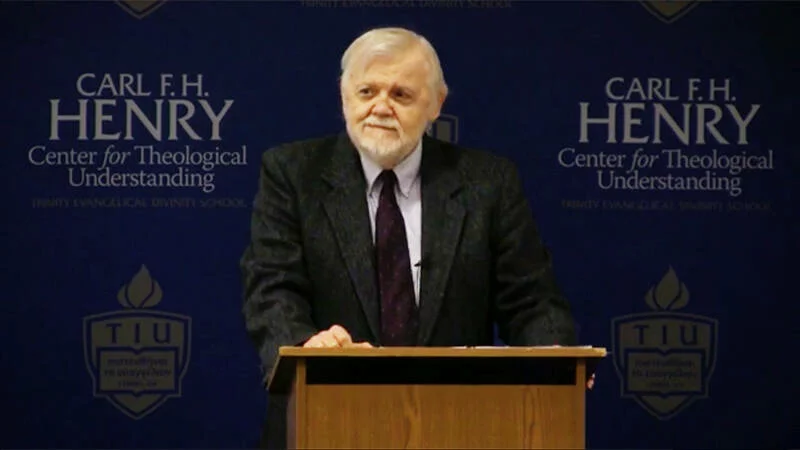
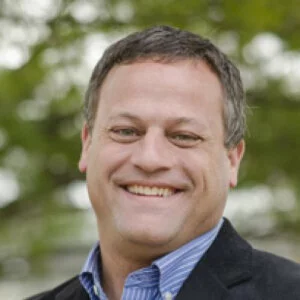


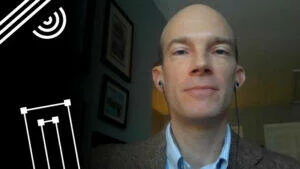
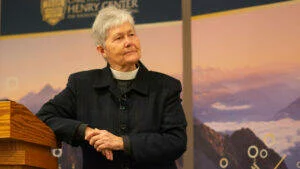

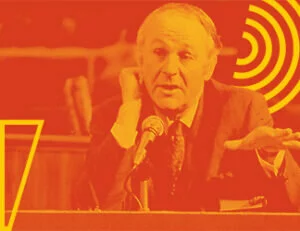
Comments
Be the first one to make a comment!